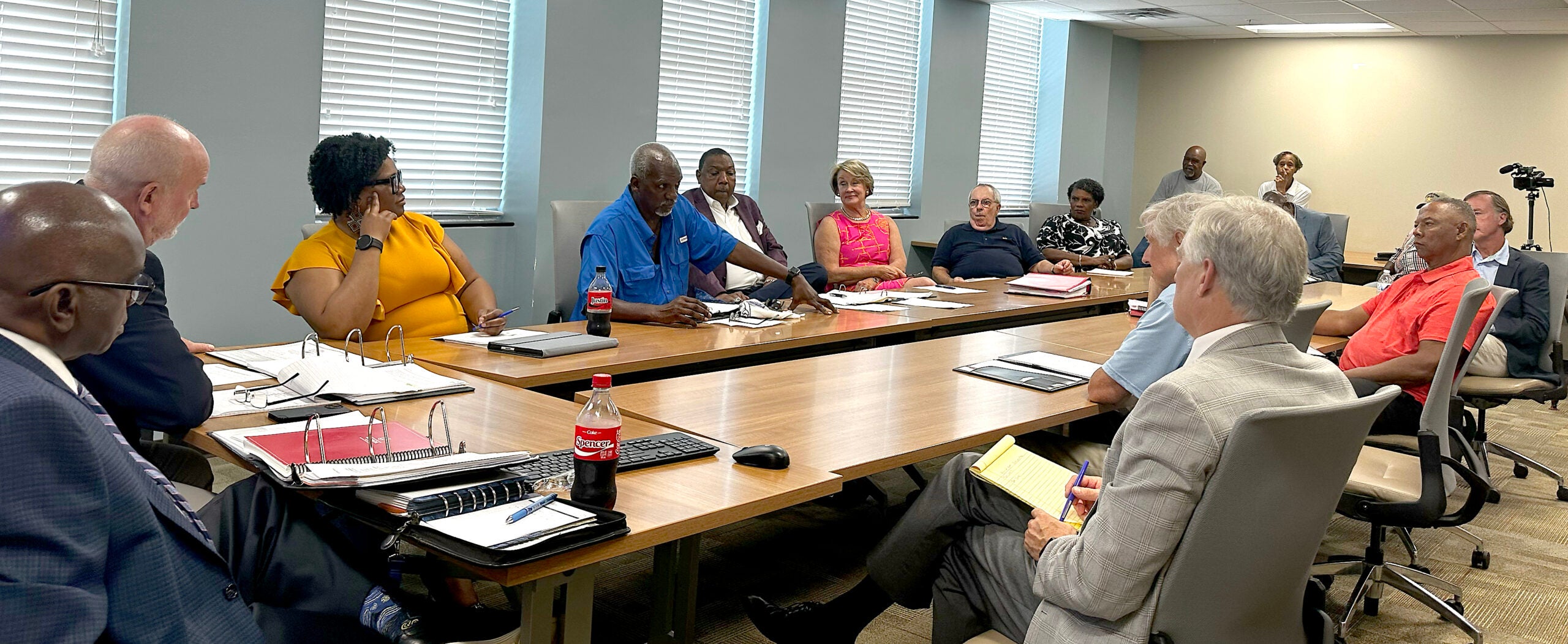Two former Augusta mayors weighed in Wednesday on the city’s ongoing charter review while review committee members questioned them about proposed changes to the charter.
Former Mayor Bob Young said the group “first and foremost” needs to decide who is going to be responsible for the day-to-day operations of the government, whether it be the mayor, a manager, an administrator, the Augusta Commission or some other entity.
Meeting for a seventh time Wednesday, the 11-member Charter Review Committee is charged with recommending changes to the city’s governing document. The committee is looking at key elements of the government such as who’s in charge and how Augusta commissioners are elected.
Young said once the committee chose the responsible party, “build a government structure that will ensure that person is successful.”
He said in the case of Augusta’s mayor, the charter gave the mayor adequate power over city affairs, but it was “diluted” by the position of administrator when it was added later and assigned responsibilities such as the city budget.
Committee members questioned Young, as well as former Mayor Deke Copenhaver, about implementing at-large voting districts. That would mean commissioners were elected by all voters rather than by district.
Young said the current structure of eight district and two super district commissioners had worked for him, although commissioners tended to over-focus on their own districts. He suggested the super district and regular district commissioners work together more.
Marcie Wilhelmi, who chairs the committee, asked Young what “safeguards” in the charter could serve to rein in a mayor who “runs off the rails.”
Young said he’d always been wary of questioning the will of voters who duly elect a mayor and have the power to recall that mayor, but it could be done, in a “very careful” manner.
Committee member Roderick Pearson said he favored electing commissioners at large. By not requiring they live in certain areas, voters would “get a more qualified pool,” he said.
Pearson, who was appointed by Mayor Garnett Johnson, later made a subcommittee motion to have the city administrator report to the mayor and share the power to hire and fire department heads with the mayor. Currently, the administrator and department heads report to the commission.
Interim General Counsel Jim Plunkett, who is advising the committee, said the motion would need to be part of a meeting agenda item before the subcommittee could vote on it.
Asked about how he dealt with issues with the commission, Copenhaver said “everything comes back to trust.”
He”‘never violated confidences,” and commissioners “would work with me,” he said. In addition, Copenhaver said he kept all 10 commissioners informed of what he was doing and held weekly meetings with the mayor pro tem, super district commissioners and the city attorney.
But the commission’s multiple members did create issues for both city department heads and the administrator, Copenhaver said.
They are pulled in “12 different directions,” he said. “It makes it difficult for that position to do their job.”
Competing among themselves, commissioners who were louder or more aggressive might have more influence, Copenhaver said.
The city’s dysfunctional appearance, meanwhile, becomes a disincentive for younger people to run for office, he said.
“Qualified candidates are not interested in going to the zoo,” committee member Clint Bryant added.
Having the mayor as a point person is key in situations such as the problems with the Bon Air, Young said. The historic hotel, now a Section 8 housing complex, has had issues with crime.
“HUD listens to a voice like that,” he said.











